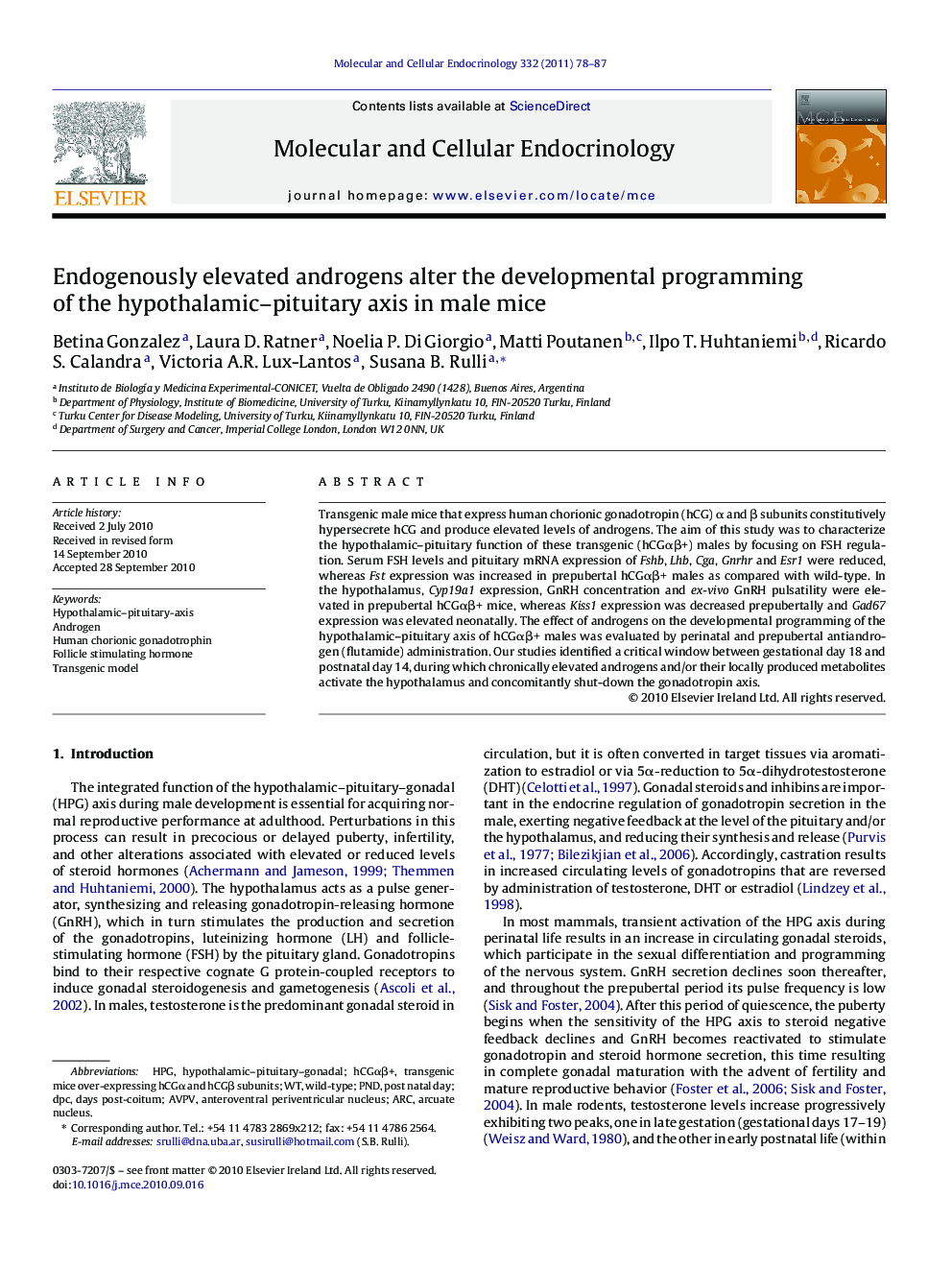| Article ID | Journal | Published Year | Pages | File Type |
|---|---|---|---|---|
| 8477985 | Molecular and Cellular Endocrinology | 2011 | 10 Pages |
Abstract
Transgenic male mice that express human chorionic gonadotropin (hCG) α and β subunits constitutively hypersecrete hCG and produce elevated levels of androgens. The aim of this study was to characterize the hypothalamic-pituitary function of these transgenic (hCGαβ+) males by focusing on FSH regulation. Serum FSH levels and pituitary mRNA expression of Fshb, Lhb, Cga, Gnrhr and Esr1 were reduced, whereas Fst expression was increased in prepubertal hCGαβ+ males as compared with wild-type. In the hypothalamus, Cyp19a1 expression, GnRH concentration and ex-vivo GnRH pulsatility were elevated in prepubertal hCGαβ+ mice, whereas Kiss1 expression was decreased prepubertally and Gad67 expression was elevated neonatally. The effect of androgens on the developmental programming of the hypothalamic-pituitary axis of hCGαβ+ males was evaluated by perinatal and prepubertal antiandrogen (flutamide) administration. Our studies identified a critical window between gestational day 18 and postnatal day 14, during which chronically elevated androgens and/or their locally produced metabolites activate the hypothalamus and concomitantly shut-down the gonadotropin axis.
Keywords
Related Topics
Life Sciences
Biochemistry, Genetics and Molecular Biology
Cell Biology
Authors
Betina Gonzalez, Laura D. Ratner, Noelia P. Di Giorgio, Matti Poutanen, Ilpo T. Huhtaniemi, Ricardo S. Calandra, Victoria A.R. Lux-Lantos, Susana B. Rulli,
